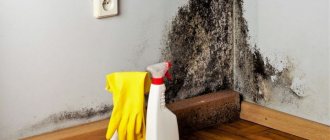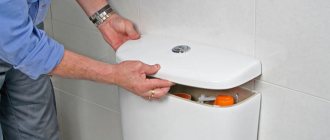Often, when preparing a particular dish, the whole house is filled with characteristic odors. During heat treatment, food releases vapors and volatile substances, so it is simply impossible to avoid odors in the kitchen. If you find a persistent unpleasant odor, you need to take action immediately, otherwise it will be much more difficult to get rid of it later. Moreover, the smell often attracts insects into the house, all this makes staying in the kitchen unpleasant. Timely cleaning, ventilation of the room and a few available products help me get rid of the unpleasant odor. You will find detailed instructions on how to do this in the article.
Fresh air
The smell of burnt food can remain in the air for several days if not specifically removed. If there is not enough hood and open windows, there is no need to lose hope. Plants have a natural ability to purify the air around you. Grow your own mini kitchen garden in pots, oregano and sage create a wonderful aroma that can help overcome unpleasant odors and make excellent cooking spices.
Don't forget to clean your dish sponges
Wash sponges are used daily to remove food waste, grease and dirt. It is not surprising that they become sources of unpleasant odors. You can avoid this problem if you thoroughly rinse the sponge in running water after washing the dishes and make sure that there are no food residues left on it. If possible, it is better to dry the sponge in the sun: UV rays naturally eliminate bacteria on its surface.
We also recommend changing sponges once a week. This way you will always have clean detergent.
Scented candles
After you've finished cooking, to quickly get rid of unpleasant odors, you can light a scented candle or two in the kitchen. These candles are easily available in stores and you can also choose the scents that you like. You will be able to quell the cooking smells of your kitchen with the pleasant aroma of scented candles, which will also help you relax.
Clean the refrigerator
If an unpleasant odor comes from the refrigerator, you need to thoroughly wash it with water and vinegar.
Smooth and fresh skin: dermaplaning, or why a woman needs to shave her face
It’s good to wash often: myths about shampoo and hair care that only harm
"Dad is offended." Agata Muceniece about her relationship with Priluchny after the divorce
- First you need to check it for spoiled food. Wash and put inside the lemon, cut into several parts. Citrus quickly absorbs foreign odors and fills the refrigerator with freshness.
- The refrigerator should be washed as soon as dirt appears, this way you can prevent the proliferation of pathogenic bacteria and fungi in it.
- Baking soda effectively removes odor in the refrigerator. Simply pour the lye into a small container and place it in the refrigerator. Don't forget to change the soda every month.
Close bedroom and closet doors while cooking.
The fabric easily absorbs grease and odors and cannot be cleaned with a quick wipe like hard surfaces can. Closing your bedroom and closet doors before cooking anything smelly or greasy will prevent you from falling asleep on a bed that smells like bacon or fried chicken. (Although it may help you wake up in the morning.)
How to remove brilliant green from linoleum
Causes of unpleasant odors
Stink in the refrigerator appears for several reasons:
- Expired food and spoiled dishes. Bad smells are caused by sour milk, rotten eggs, spoiled fish and meat, rotten vegetables and fruits, open canned food and sour soups.
- An unpleasant specific amber can arise from mixing incompatible products.
- A blockage in the drain hole, the appearance of mold, dirt, and emergency defrosting can also cause a problem.
- Improper maintenance of the refrigeration unit.
A foul odor indicates that there is a dangerous health problem that should be corrected immediately.
How to get rid of bad odor using folk remedies
To quickly eliminate the stench, you need to throw away unusable food, defrost the refrigerator, and wash it thoroughly. However, even after these measures, the unpleasant odor may continue to bother you for some time. The following measures will certainly help you get rid of it at home:
- To rinse, add a little lemon juice, then thoroughly wipe the insides, shelves and containers.
- Instead of lemon juice, you can add ammonia or vinegar to the solution.
- Garlic is also excellent at absorbing unpleasant odors, so you can rub the inside walls with garlic cloves. After a couple of hours, the refrigerator needs to be rinsed again to remove the garlic smell.
- After washing, place strong-smelling herbs on the shelves, such as cloves, cinnamon, celery, etc.
Odor absorbers
Industrial ionizers, fresheners and adsorbents or “odor absorbers” do an excellent job of eliminating stench. These products are sold in hardware stores today. However, you should only buy products that are intended for the refrigerator. Otherwise, it could threaten the whole family with poisoning.
But if there are no special compounds at hand, then it is quite possible to make do with improvised folk remedies:
- Salt and sugar - place small containers with these products on the shelves of the refrigerator.
- Activated carbon - leave the crushed tablets inside the refrigerator for a couple of days.
- Place the baking soda solution on the shelves. Change approximately every 20 days.
- Rice - keep a small amount of unparboiled grains in a gauze bag in the refrigerator, replacing them with new ones from time to time.
- Coffee beans are excellent at neutralizing a mixture of unpleasant odors.
Preventive measures
Preventive measures will help prevent problems in the refrigerator:
- Defrost and wash regularly.
- Prevent the occurrence of mold.
- Get rid of rotten foods in a timely manner.
- Promptly remove vegetables and fruits that have begun to spoil.
- Pack foods and dishes with a strong aroma in containers or close the lids of the pans tightly.
So, to prevent the refrigerator from becoming a source of spreading a terrible smell, it is necessary to properly care for it, wash it regularly, arrange adsorbents in a timely manner and follow the general rules for storing food.
Not only unpleasant, but also harmful!
The point is not only that the heavy sewer spirit is unpleasant to all household members, it is also harmful. Human evolution has made sure that he can recognize odors that threaten his health. And a sharp, repulsive smell signals us about danger; we should not distrust our instincts.
Let's try to figure out why the smell from the sink is harmful? The air from the sewer, which enters our premises and causes our rejection, is poisonous. It contains hydrogen sulfide and ammonia fumes. During decomposition processes in the sewer system, methane is also formed, which also does not contribute to human health.
Together, these substances - methane, ammonia and hydrogen sulfide - negatively affect human health. Through the respiratory system they depress the central nervous system. In severe cases, they provoke nervous breakdowns and brief loss of consciousness.
Therefore, we strongly recommend removing the unpleasant smell under the sink as soon as you notice it!
How to clear a clog in the kitchen
It often happens that over time, food debris, hair, grease and other waste penetrate into the pipes, forming a plug in the sewer, which interferes with the normal flow of water and has an unpleasant odor.
You can deal with blockages using:
- Plumbing cable;
- plunger;
- Disassembling the siphon and subsequent cleaning of all elements.
Cleaning pipes with a plumbing cable
Plumbing cable is very often used by plumbers and is a fairly popular means of dealing with blockages. It is a metal rod in the form of a spiral that can bend and penetrate into all bends of the water supply.
Please note: if you have plastic corrugated pipes, then the cable cannot be used, it will simply damage them. In this case, the corrugated pipe must be dismantled, and the cleaning process must begin from the place from which it was removed.
The cleaning process with a plumbing cable is quite simple:
- Push the plumbing cable into the hole in the pipe and use a screwing motion to push it as deep as possible. The handle at the end of the cable is always curved to allow rotational movements.
- The cable must be pushed to the expected location of the blockage, or to the riser. The cable is very flexible, so it will easily go through all the bends of the pipes.
- Having immersed the cable to the required length, continue to make rotational movements to clean the pipes.
- Carefully pull the cable towards you to catch any debris that is clogging the drain.
- Run a stream of water to remove any remaining grease.
If after completing all the procedures the water begins to drain well, then you have solved the problem.
Clearing a clog with a plunger
A plunger is a classic way to remove blockages in a plumbing unit, not only in the kitchen, but also in the toilet. To use it, no special skills are required, just follow a few simple steps:
- Press the rubber band onto the sink drain;
- Press firmly on the handle;
- Pull the handle up sharply;
- Repeat the procedure several times;
- Open the tap and run some water to check the result.
Important: this method only works if the sink consists of only one section. If you have several sections, you will either have to use several plungers or plug the “extra” holes with a damp cloth.
Cleaning the siphon yourself
When using the sink actively, you will have to clean the siphon from time to time to avoid clogging and unpleasant odors. Naturally, this is not the most pleasant job, but it is an effective method of dealing with blockages.
Before starting work, place the container under the siphon, as water may leak out during the disassembly process. After this, unscrew the siphon, disconnect all attached elements and clean them, then carefully assemble the entire system back. If any siphon sealing materials are damaged, they must be replaced. In the store you can easily find a set of gaskets for siphon repair.
Removing clogs in the sink
The sink also requires high-quality cleaning, otherwise bad odors will constantly float around the kitchen. You can get rid of blockages using a special product, but it may not be suitable for your pipes, so you won’t be able to use it.
Clear clogs as follows at least once every two weeks:
- First, pour rock salt and soda into the drain in a ratio of two to one, and then pour vinegar there in small portions.
- Wait for the reaction in the form of hissing, after it ends, repeat the procedure again and close the hole with a stopper.
- After half an hour, pour 2-3 liters of boiling water into the sink, and after 5-10 minutes, rinse it with warm running water.
This operation will definitely get rid of the blockage and will not damage the plumbing communications.
Other options
In all cases when the sink smells like sewage, what to do in such a situation is decided step by step. Normal procedure:
- carefully inspect the outlet and siphon of the kitchen sink, there may be cracks or holes on them;
- run the water and check how fast it comes out of the sink;
- try to find the source of the odor by walking along the pipeline and determining which area the smell is strongest.
If there are no blockages, water comes out of the sink at a normal speed, but the smell still appears, you should look into the tightness of the sewer. The question often arises: why does air come out of the kitchen sink and smell like sewage? There are two options here:
- excess pressure of gases has been created in the internal volume of the pipelines, which breaks the water seal and escapes into the living quarters;
- During the volley discharge of wastewater, a strong vacuum was created, which broke the water seals inside the sewer system and opened the passage for gases into the apartment or house.
Both options have the same consequences, differing only in the direction of the water seal failure. There is a bad smell from the sewer in the kitchen, how to eliminate it by installing ventilation devices? The solution to the problem of excess pressure will be the creation of a vent pipe, allowing the excess volume of gases to escape into the atmosphere. This must be done by employees of the management company, since the waste pipe is a continuation of the sewer riser. This work requires organizing a passage through the roof, sealing the area and other complex and skilled work.
Installing a ventilation valve will help eliminate the vacuum in the sewer system caused by the volley discharge of water. This element can be installed independently; it is mounted on a horizontal section of the apartment sewer system. The device operates on the principle of a check valve - when a vacuum occurs, the valve opens and lets in air, balancing the pressure in the internal volume of the system. The disadvantage of this option is that the valve only works in one direction, i.e. unable to correct excess pressure. However, in most cases it is the installation of a ventilation valve that helps.
You may also like: How to eliminate sewer odor in the bathroom and toilet yourself
Use a bag of dry herbs
Bad odors may appear in the kitchen cabinet where cereals, pasta and seasonings are stored, as well as in the location of the trash can. A bag filled with dry herbs will help get rid of the problem.
You don’t have to buy a ready-made sachet; you can make it yourself. Sew a small bag from natural fabrics. Use dried lavender leaves, sprigs of rosemary, mint or rose petals as fillers, and add a drop of appropriate essential oil to enhance the effect. Cinnamon sticks, cloves and citrus slices dried in the oven are also great.
Prevention will save us from many problems.
As with many problems, it is easier to prevent than to solve. Therefore, in housekeeping it is better to adhere to the tactics of taking preventive measures.
- Be sure to buy a special mesh for drainage; it will prevent large fractions of food debris or cleaning products from going down the drain. But it is not recommended to pour even small food waste like coffee grounds or tea leaves down the sink.
- After using the sink, run hot water, this will prevent grease from settling on the walls of the sewer.
- Clean your drain monthly using home remedies (see recipes above) or household chemicals. This will allow you to keep your entire sewer system clean.
- Use only high-quality siphons that are easy to disassemble and assemble. It is better to entrust their installation to professionals.
- Monitor the condition of the joining seams and lubricate them every 3–4 months.











